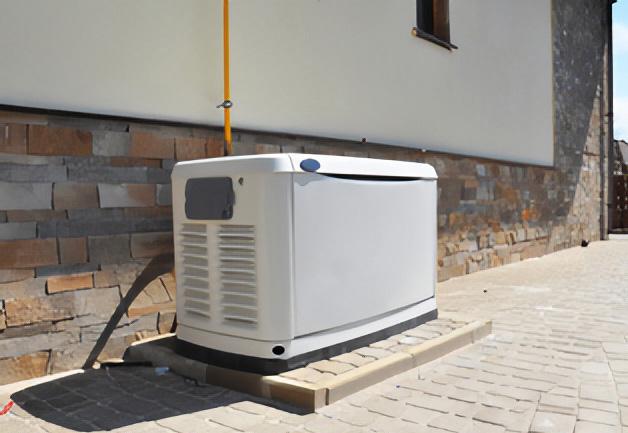Want to save with Paschal? Don’t miss our current offers and specials

Want to save with Paschal? Don’t miss our current offers and specials
Return to Paschal Resource & Education Hub

Winter means beautiful snow, hot chocolate, snowmen, and family sledding adventures. But winter also means ice on the windshields, dark drives to and from work, and winter storms. And these winter storms can create widespread power outages.
Some outages are temporary inconveniences and require just a couple of extra blankets to keep warm for an hour or two. Others make you feel like you’re in the Great White North just trying to survive—which, without power, can quickly become a reality.
A home generator can be the perfect solution to these outages and can help you be more prepared this winter. But how do you know which one is right for you?
Check out these three main factors to consider when purchasing a home generator.
The first way to choose the right home generator is to figure out how often you’ll use it. Frequent outages usually mean a larger generator. You’ll be using it more often and probably powering more appliances. You’ll need a more powerful generator to keep up with all that demand!
For occasional outages, you may want a moderately sized generator. This can power several of your critical appliances but not your entire home for days at a time. Or, if you’re wanting a generator for those just-in-case scenarios, consider a small unit for infrequent outages and minimal appliances.
Choosing the right home generator isn’t just about how often you’ll use it, but also how much juice you’ll need. You need to know how many watts the generator will have to handle in the event of an outage. Do you just need your furnace to work? The furnace and stove? Or do you need to add some comfort items like four electric blankets, the TV, and your laptop?
Here’s how to figure out how much power you need:
At any size, a home generator is an investment. Considering your budget can help you find the perfect middle ground between your wallet and your needs.
Standby is the most expensive model—around $10,000 installed. It lives outside your home on permanent standby, ready to automatically kick on when your regular power source fails. The significant price tag comes with a considerable advantage: Standby generators can power your entire home. If you want 24/7 protection, experience frequent outages, and want your whole house to be lit up, a standby is worth looking at.
Portable models power around 7,500 watts and cost a couple thousand dollars. They usually provide the best cost-to-capacity ratio. Some models can be installed directly into your breaker panel for hardwired appliances—A/C, sump pumps, water heaters—which means they have some of the same benefits as standby generators. However, they’re noisier, need a lot more gas, are bulkier, and often cost just as much to install. But if you need a lot of power for occasional or rare outages, a portable model is probably the right call.
Inverters generally cost $1,500 or so and come in many sizes. Midsized inverters are lightweight, quiet, and efficient. But these little guys can’t be used for your hardwired stuff, like heating and sump pumps. A large invertor is similar to portable models but needs stabilized gasoline. (These models don’t run on natural gas or propane.) Occasional or rare power outages and less power demand are the best scenarios for invertor home generators.
The bottom line: The “right” home generator will power the appliances need… for how often you need them… at a price you’re comfortable spending.
Finding that perfect balance is hard. We’ve been helping your Northwest Arkansas, Fort Smith River Valley & Southwest Missouri neighbors chose their generators for over 50 years. We’ve got you covered from recommendation to installation and beyond. Give us a call today!
We love helping you with your HVAC, Plumbing & Electrical problems, big and small. For more tips and tricks for your home, follow us.